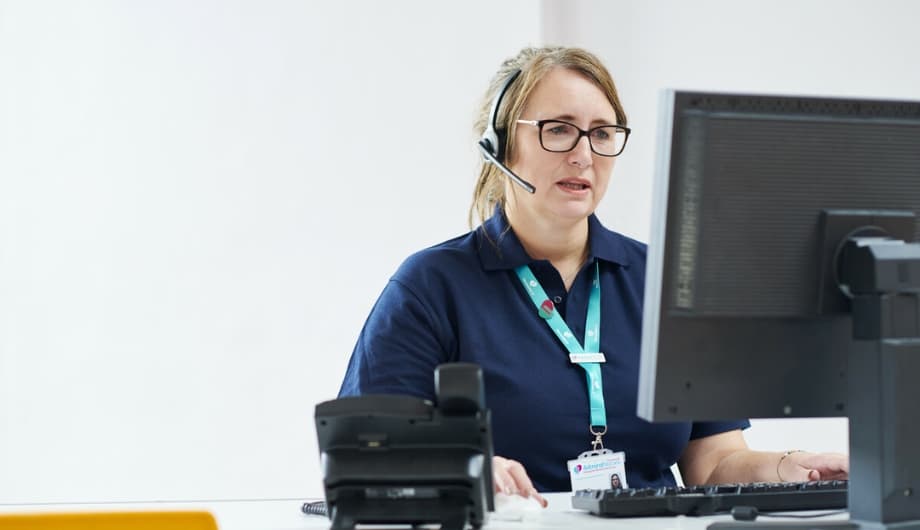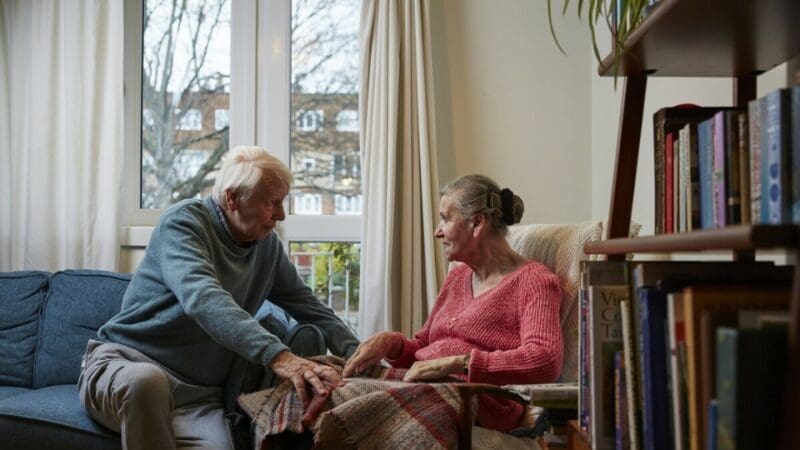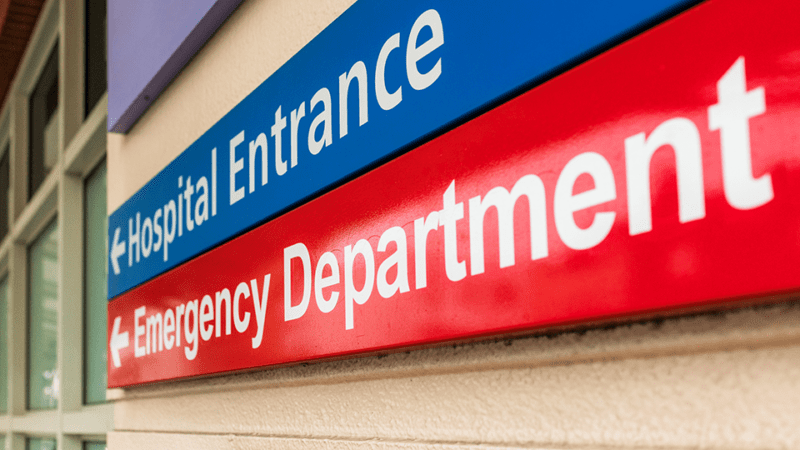
Christmas activities for people living with dementia
Christmas activity ideas for a person with dementia for a fun and engaging time for all the family
Admiral Nurses behind our Helpline share their advice for families affected by dementia who are feeling increased anxiety.
Dementia UK’s Admiral Nurse Dementia Helpline has reported a 36% increase in calls this year (1st Jan-1st September 2020). This can be attributed to support services being put on hold, changing behaviour in the person diagnosed due to long periods of isolation, limited stimulation and lack of respite; and more strain amongst family carers as a result of uncertainty around lockdown rules and guidance.
Susan Drayton, Clinical Lead at Dementia UK’s Admiral Nurse Dementia Helpline said:
“This is an extremely challenging time for families with dementia, who have had entire routines swept from under their feet overnight. As dementia is a condition which affects comprehension and communication, it can place huge strains on family carers and the person diagnosed to keep up to date with changing guidance. These issues are compounded by dwindling support services which can increase deterioration in the person with dementia and the emotional toll on the carers themselves. It’s vital that we continue to highlight the needs of people affected by dementia at this time, particularly as they are now known to have been disproportionately affected by coronavirus.”

When things get challenging or difficult for people with dementia and their families, Admiral Nurses work alongside them, giving the compassionate one-to-one support, expert guidance and practical solutions that can be difficult to find elsewhere.
The Helpline Nurses have put together some advice for families with dementia to manage this challenging time.
Supporting from a distance: If you are supporting someone with dementia who lives on their own, they may have difficulty understanding what has changed in terms of lockdown restrictions. It is important to keep in touch, take time to explain changes and make information available to them in a simple and accessible way.
Routine: Gradually re-introducing parts of your old routine to your lockdown routine and keeping active can provide some comfort, stability and improved mental health and wellbeing. Although your choices may be limited, try to focus on the things you enjoy.
Keep in touch: Draw on support you might have through your friends, family and other networks. Keep in touch with face-to-face services you were accessing prior to the pandemic to find out when they are going to resume services or alternatives to respite support. If your loved one is in a care home, keep in touch with the home to find out if and when you are able to visit.
Post shielding support: If you have been using services set up specifically for shielding or self-isolating individuals, you should keep in touch with your local authority about what services will remain in place and what you need to take responsibility for. Some forms of support – such as priority supermarket delivery slots and some local volunteer schemes – will continue.
Get help and support: While it is important to be aware of coronavirus, it is also important not to forget about other health conditions you might have. If you or the person you care for have not been able to access medical services due to the closure of NHS clinics, it may be time to contact the NHS for an appointment.
If you are struggling with your mental health or have experienced grief or bereavement due to the coronavirus pandemic, allow yourself space to grieve and seek support from your GP if required.
You can also speak to an Admiral Nurse on Dementia UK’s Helpline by contacting 0800 888 6687 or helpline@dementiauk.org.

Christmas activity ideas for a person with dementia for a fun and engaging time for all the family

Consultant Admiral Nurse for Frailty, Kerry Lyons, answers your questions about delirium, falls and incontinence.

Admiral Nurse Tracy Browne shares tips on how to support someone living with dementia during a stay in hospital.